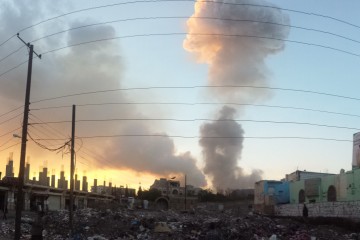
How can al-Qaeda in the Arabian Peninsula be defeated?
Al-Qaeda in the Arabian Peninsula (AQAP) went “on the run” two weeks ago as UAE-supported military forces closed in on the city of Mukalla, AQAP’s de facto capital in eastern Yemen. Saudi state media celebrated a mass annihilation of fleeing AQAP fighters. In reality, the evidence from the ground was more complex. According to my sources in and around the city — borne out by other reporting — AQAP conducted a tactical withdrawal following negotiations with local intermediaries. It remains a coherent organization. This “liberation” of Mukalla from al-Qaeda rule raises awkward questions. First, how was AQAP able to facilitate a graceful exit, such that it can regroup and bide its time to return? Second, and more fundamentally, how has AQAP continued to spread its influence …
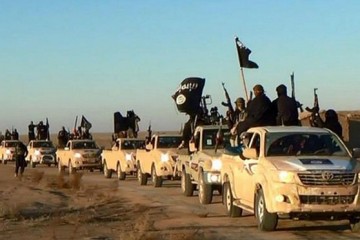
Using poetry to recruit violent jihadis
My work on the use of poetry as a recruiting tool is discussed in a recent article in The Guardian. Here is an excerpt: “Poetry may be a potent tool in recruiting militant jihadis, a new study by Oxford academic Elisabeth Kendall has found. In Yemen’s al-Qaida and Poetry as a Weapon of Jihad, published in a new book, Twenty-First Century Jihad, she writes: “The power of poetry to move Arab listeners and readers emotionally, to infiltrate the psyche and to create an aura of tradition, authenticity and legitimacy around the ideologies it enshrines make it a perfect weapon for militant jihadist causes.” Osama bin Laden composed an ode to the destruction of the USS Cole in 2000, which he recited at his son’s wedding, and a …
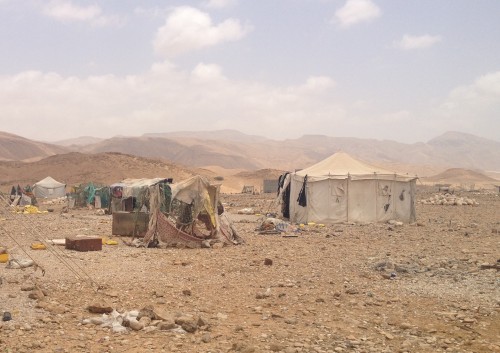
How does al-Qaeda attract Yemenis?
I recently wrote an article on the BBC website about the current situation in Yemen. As the recent experience of several Middle Eastern countries has shown, when governments break down, terrorist groups flourish. Yemen is the latest casualty. The unraveling of Yemen’s government and subsequent civil war has only increased the operational reach of al-Qaeda. A Saudi-led coalition, backed by the US and UK, is currently conducting air strikes against Yemen’s Houthi-led rebels. The latter swept into Yemen’s capital last September and consolidated their grip on power earlier this year assisted by former president Ali Abdullah Saleh, who maintained control of much of Yemen’s military apparatus. Ironically, this international military campaign is playing into al-Qaeda’s hands in several ways: by targeting al-Qaeda’s own domestic enemies; by employing sectarian rhetoric that plays up Sunni-Shi’ite fault lines previously insignificant in Yemen; by destroying Yemen’s military hardware that had been used against al-Qaeda; and by enabling al-Qaeda to exploit the lawless war-torn environment to expand its influence and build alliances among southern and eastern tribes to combat the mutual Houthi foe.
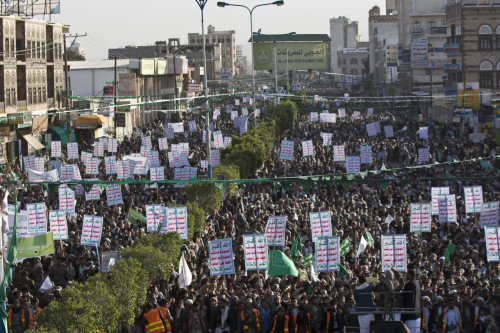
Transition and unease in the Arabian peninsula: a radio interview
Yemen continues to lurch from crisis to crisis. Last September, Houthi rebels (Zaydi Shi’ites from Yemen’s north) overran the capital Sana’a and have continued their push for geographical and political domination. After kidnapping the Yemeni President’s Chief of Staff on 19 January, in the following days they went on to besiege the Presidential Palace and demand changes to Yemen’s new draft constitution. Following failed attempts to implement a power-sharing agreement, on 22 January Yemen’s President, Prime Minister and Cabinet all resigned, stating that “we don’t want to be party to what is going on and what is going to happen”. That same day, Saudi Arabia’s King Abdullah died. While the Saudi transition appears smooth and promises continuity, where is the Arabian Peninsula heading?
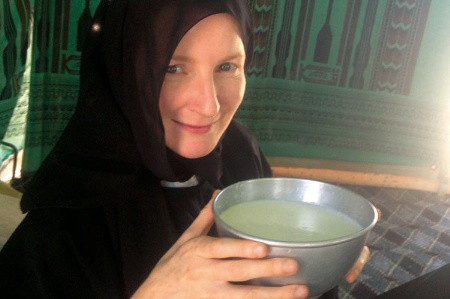
Oxford to Yemen: from literary scholar to tribal adviser
In today’s academic environment, two watchwords that crop up on most project target lists are interdisciplinarity and impact. Find out how both are being brought to bear on new research in the outlying tribal regions of Yemen. As a Senior Research Fellow and Arabic specialist I have been working in Egypt and Yemen in the years following the outbreak of the Arab Spring in 2010. My research started in Egypt with a survey of media, culture and public opinion in the aftermath of the revolution, together with political scientists from Oxford’s DPIR and Cairo University. At the same time, my study of the use of poetry in Yemen’s jihadist journals brought me to a new political interest in how Yemen’s transition to a federal system is playing out in Yemen’s eastern regions. Together with local tribesmen, I sought to gather popular opinion on the range of social, economic and political challenges facing them, which in turn precipitated the formation of an elected cross-tribal council. I’m continuing to talk to governments and the UN about problems faced by the tribes in eastern Yemen and the associated political instability.

Yemen’s Eastern Province: The people of Mahra clearly want independence
In late November 2013, I was invited by a cross-tribal delegation in Yemen’s eastern province of Mahra to explain the results of a public opinion survey that I had completed there with their help earlier in the year. Owing to heightened security risks from entrenched interests and al-Qa’ida operatives, around 20 vehicles of trusted tribesmen, armed to the hilt, had made the journey to meet me at the desert crossing between Oman and Yemen. We drove through the night to a fortified compound just outside Mahra’s capital, al-Ghayda. This unfurnished fortress was to be the centre of activity for me and about 50 armed men for the next week. Strangely, I had never slept so well as I did on my roll-up mattress on the floor, safe in the knowledge that three guards remained outside my window all night and a dozen more on the roof above me.

Secrets of Yemen’s eastern deserts
I recently travelled to Yemen’s remote and dangerous Mahra region to carry out the first ever survey of the local people’s hopes, fears and political aspirations in post-revolution Yemen. Here is a description of some of my experiences.
“Yallah, pack up. We leave in ten minutes.” For security reasons, our schedule was not revealed in advance, even to me.
Our convoy had settled for a few days in al-Ghayda, the ramshackle capital of Mahra governorate in east Yemen, and word of our presence was spreading fast. Invitations from local dignitaries had increased from a trickle to a flood. Traditional hospitality was the best way for opponents with vested interests to learn what we were up to.
It was time to move on. My tribal guards and hosts were eager for me to experience the beauty and hospitality of the deserts. Few outsiders, even Yemeni, have been given the chance to venture away from Mahra’s coastal regions into the uncharted interior.
Making a stop at a final gas station before heading north off-road into the undulating sands of the Empty Quarter, we loaded our convoy with as much water and petrol as we could carry.
Dotted around the station were well-armed men in trucks. Look-outs. My guards recognized them from the compound where a powerful tribe had invited us to share trays of lamb the previous day. Outside the compound, the rules of hospitality no longer applied. Yesterday’s hosts became today’s hostiles.
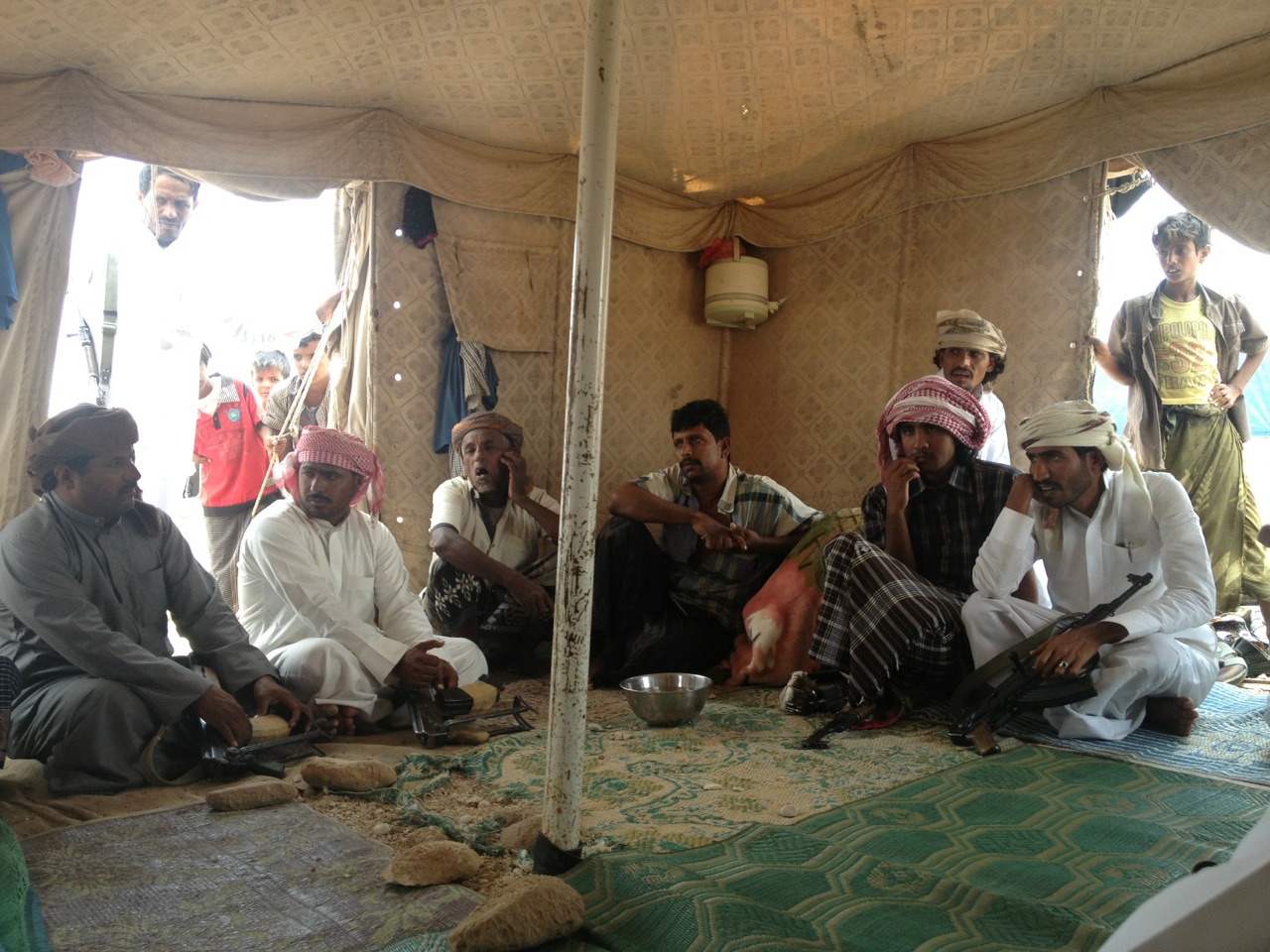
Staying safe among Yemen’s eastern tribes
Elisabeth Kendall, senior research fellow in Arabic and Islamic studies at Pembroke College, Oxford, recently travelled to Yemen’s remote and dangerous Mahra region to carry out the first ever survey of the local people’s hopes, fears and political aspirations in post-revolution Yemen.
There she spoke with tribal leaders about the threat to the region from al Qaeda fighters, met tribesmen trying to combat gun and drug smugglers, and heard of plans to pipe the region’s limited water supply to Saudi Arabia.










